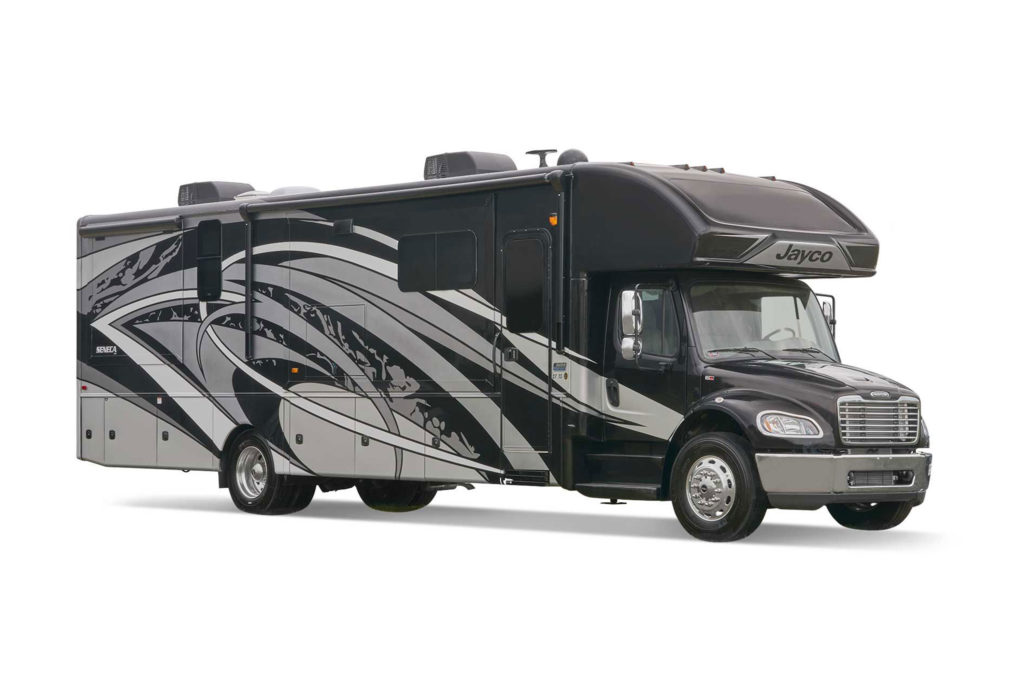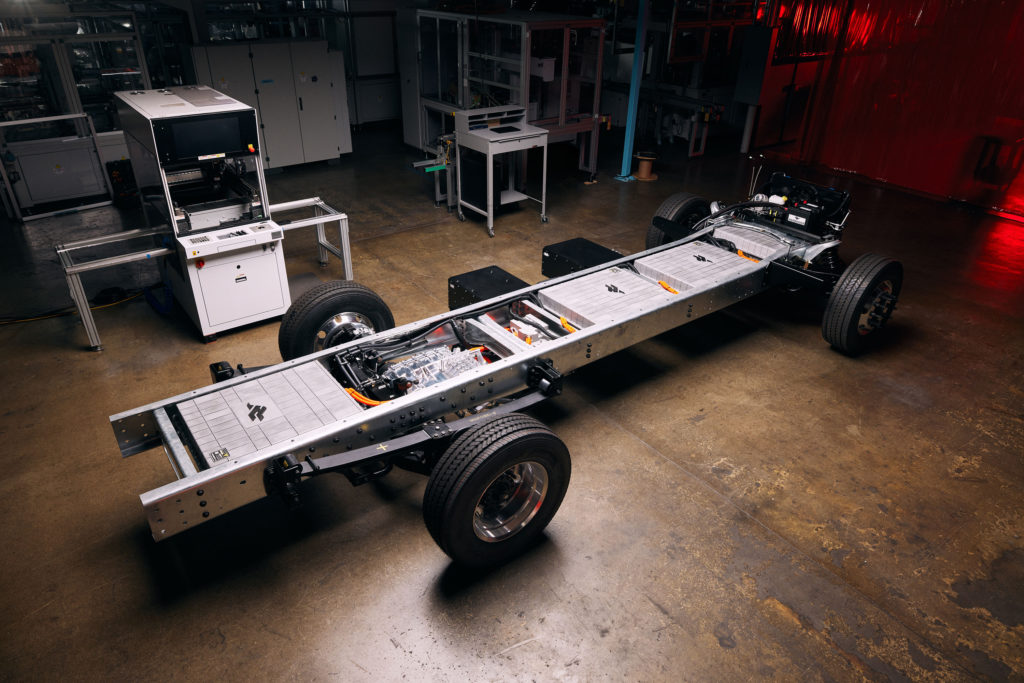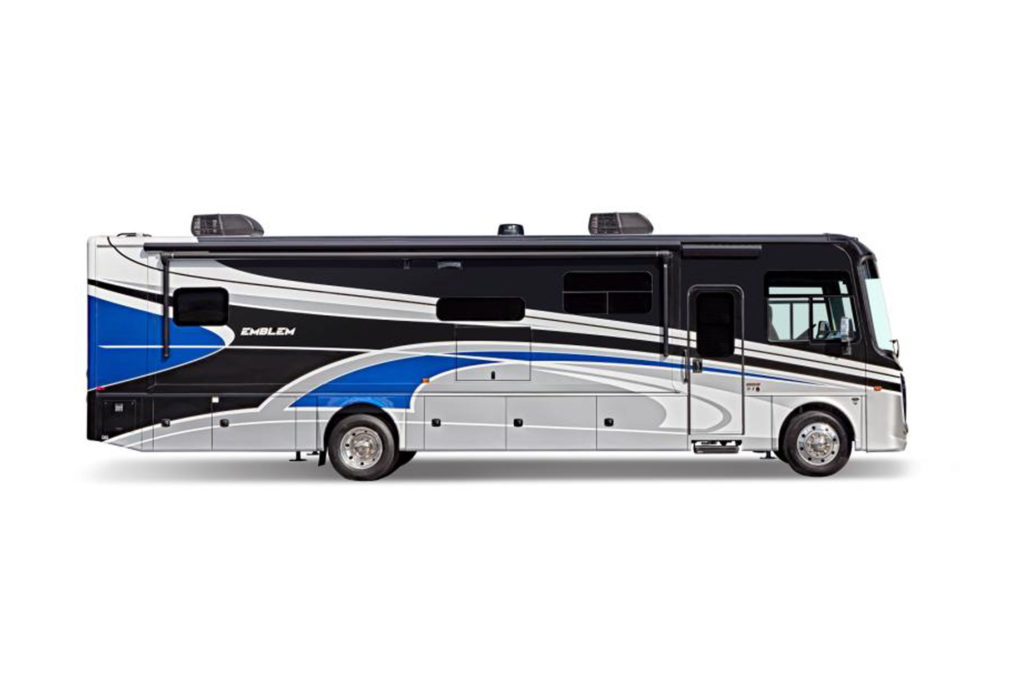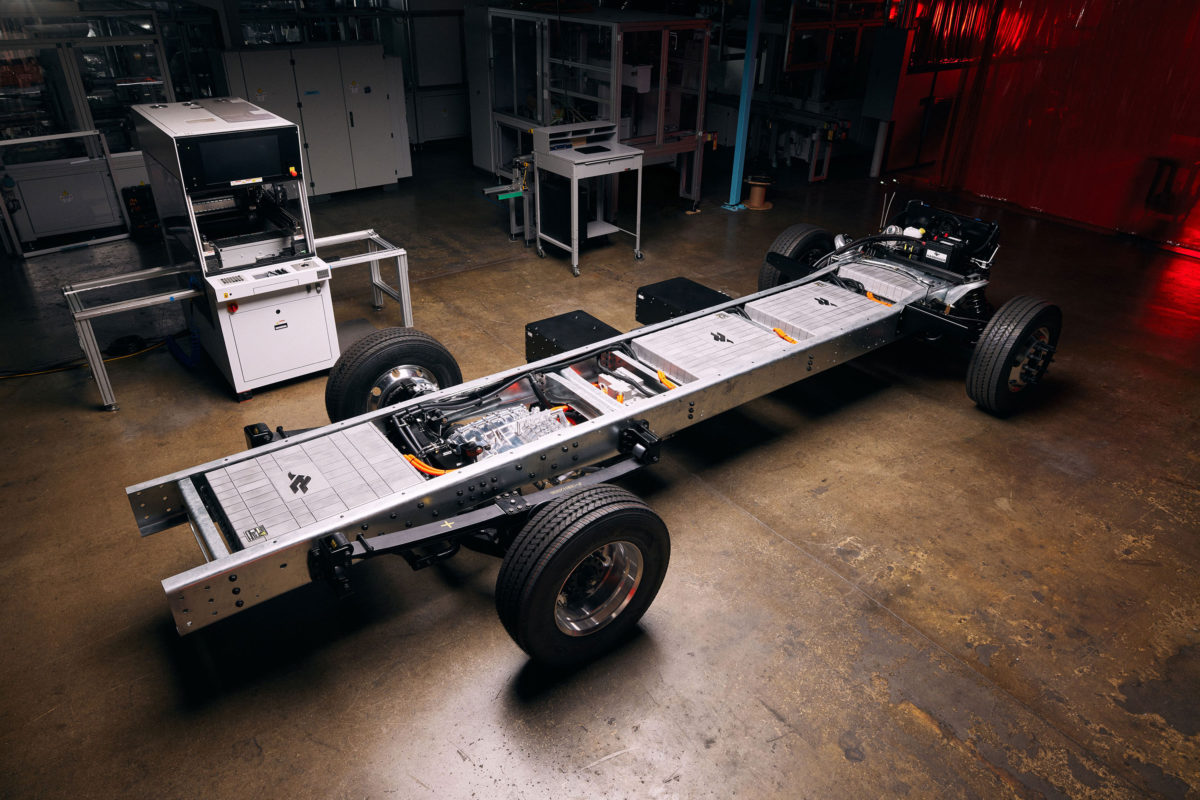Early in November, Harbinger, a Los Angeles-based automotive startup, forged a strategic partnership with Thor Industries, the world’s largest recreational vehicle manufacturer, to deliver medium-duty, all-electric vehicle chassis for the motor home market. This is probably not something many drivers think about, but there’s plenty of work to be done cleaning and greening the RV segment, and this announcement could be an important step forward.
BIG NEWS: Harbinger aims to redefine medium-duty vehicle segment with new platform
It’s not available on the market yet, but Harbinger’s all-electric, medium-duty vehicle platform will be offered in a wide range of configurations, with four wheelbase lengths, four battery sizes, and weight ratings between roughly 16,000 and 26,000 pounds. This flexibility allows commercial customers to tailor the vehicle to meet their specific requirements, because a garment-service company probably doesn’t need the same range and weight capacity as a beverage-delivery business.

Catering to folks with a desire to hit the road and explore, “We will be offering RV chassis with more than 300 miles of electric range,” said Phillip Weicker, chief technology officer and co-founder of Harbinger. In an interview with EV Pulse, he also explained their vehicles will meet the needs of many motor home customers. Owners are also sure to appreciate the unique advantages electrification brings to the table, like smooth, quiet operation and lower running costs compared to internal combustion. More than 300 miles of range on a charge is an undeniably impressive figure for a vehicle the size, shape and weight of a motor home.
Harbinger’s commercial vehicle platform will offer 70-, 105-, 140- and 175-kilowatt-hour battery capacities. These packs will feature an 800-volt architecture for rapid charging capability and liquid cooling for enhanced performance and longevity. Weicker noted, “There will be different battery configurations associated with RVs,” though he declined to elaborate. Perhaps an even larger pack will be offered for motor home service, as the estimated range of a Class 5 vehicle with the 175-kWh battery is 205 miles.
READ THIS: The Rivian EDV is the most innovative commercial van we’ve seen
When it comes to performance, motor homes based on this platform should also deliver impressive performance. The permanent magnet motor is expected to provide a stout 470 horsepower, around 1,142 pound-feet of torque and zero tailpipe emissions.
“Harbinger’s proprietary technology and their focus on medium-duty solutions makes them a great partner for Thor,” said the RV manufacturer’s chief operating officer in a media release. “Harbinger is aligned with the Thor family of operating companies and our global innovation team to position us to help deliver the RV experience today’s owners seek and tomorrow’s RVers dream of — from design and safety to comfort and technology.”

Aside from their all-electric powertrain, other engineering details will help differentiate Harbinger-based motor homes from the competition. The platform features an independent front suspension for a smoother, more comfortable ride. There’s also a rack-style steering system, which should make a big, honkin’ RV handle a bit more like a passenger car. Harbinger’s medium-duty architecture with body-on-frame construction is also designed to withstand decades of hard use. RVs based on this vehicle should be designed to last for 20 year and provide a standard operating life of 450,000 miles.
SEE ALSO: The Blue Arc Power Cube is a portable EV charger that can be driven like a remote-controlled car
All-electric RVs aren’t really a thing right now, but just like battery-powered cars and trucks, they promise numerous benefits. Of course, there are important questions that remain unanswered. How much will Harbinger-based RVs cost and where will you recharge them if you venture too far from a campground that provides Level 2 or DC fast charging capability? But as with EVs, drivers will learn about the advantages and disadvantages of these vehicles and adapt accordingly. Infrastructure and battery technology will also improve in the coming years, making life with an electric car, truck or motor home easier.

Harbinger’s first vehicles are expected to hit the road late next year, though volume production won’t get underway until sometime in 2024. As for all-electric RVs based on this platform, Weicker wouldn’t say, though it sounds like they’ll come out after full-scale manufacturing is up and running.
